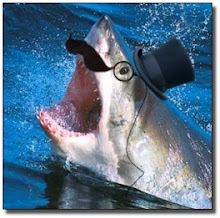All of this information is basically true. There are indeed such fish. The writer has gotten so much right, but watch as he blows it all in the last paragraph.'We read about fish that live in caves. They can’t see, and they have scars where most fish have eyes. Were they created like this?’No. Mutation and selection have changed them from a state in which they had eyes to one in which they don’t. The following is almost certainly what happens in such situations.
A population of fish that have eyes begins to live in underground environments that have no light. Their eyes are then useless to them. However, organs do not ‘degenerate’ just because they are useless. The information to produce eyes is copied and passed on, generation after generation.
Even fish that live in light occasionally have copying ‘mistakes’ as this information is transmitted. These ‘mistakes’ are called mutations. They corrupt and damage the information. When a fish living in a light environment has such a mutational defect which causes its offspring to have no eyes, this defect does not have very much chance of being passed on generation after generation.
The reason is simple—a fish without eyes is normally at a tremendous disadvantage. Sight helps fish catch their food and avoid being caught for food themselves. Natural selection will thus tend to eliminate this defect.
But what about those fish that have come to live in caves? Sooner or later, the same eyeless defect will occur here as well. Only this time, it does not give any disadvantage, so it is not eliminated. In fact, it gives advantage. The fish that have eyes can bump into things and injure their eyes, also they can get diseases of the eyes, both possibly leading to death. The fish that carry the eyeless (defective) information can’t get any of these problems. These eyeless fish thus have a greater chance of passing on their genetic information (carrying this defect) and so in time, natural selection will ensure that all the fish are eyeless.
Note that this is a ‘downhill’ change. Complex, functional information coding for eye manufacture has been corrupted or lost. Such a decay process gives no evidence at all for the belief that complex organs have arisen by such processes—it only shows how this information can be lost in a fallen world.D'oh! So close, and yet so far. This last paragraph shows that the author doesn't know much about evolution. This is not, as the author claims, a 'downhill' change. For one thing, the information coding for eye manufacture has not been lost. Blind cave fish begin to develop eyes before they are hatched, but then something actively stops the process and causes flesh to grow over the malformed eyes. Even when the eye lens from another, sighted fish is transplanted into the blind fish, it is covers over in the same manner. (Science 289 (28 July): 631–3) No trait has been lost, instead a new one has evolved.
Even if the genes for growing eyes had been lost in the cave fish, this would still be an example of evolution. Evolution is undirected, it follows whatever path maximizes the ability of an organism to reproduce. Evolution cannot go backwards, only forwards. Even when a trait is lost, evolution is still going forwards. The irony is that the first part of this article is, as far as I can tell, completely accurate. It demonstrates evolution in action. But the author has completely missed the point. The blindest of all are those who see, and then avert their eyes to deny their sight.

2 comments:
Although I've never seen it formally defined, I think there is a relevant sense of "downhill", basically increase in entropy in the sense of going from macro-states with fewer micro-states to ones with more micro-states. In the absence of selection pressure, changes will tend to be toward phenotypes with more possible genotypes.
It's likely that most of the things we think of as complex features would be lost to genetic drift (i.e. if there were no selection pressure to maintain them), and unlikely that such features would be gained by genetic drift. Genetic drift (without selection pressure) contributes to speciation, but not to the appearance of complex features.
The disingenuous fundie seems to have been correct as far as he went. Observing genetic drift doesn't constitute direct evidence of the effects of selection pressure. Of course, (and here's where the fundie gets disingenuous) it doesn't constitute evidence against the effects of selection pressure either, whereas it does refute some versions of creationism that imagine species to be entirely static.
I'd try using your replies in a different color to your article, the first half i read i thought it was you and then realised it wasnt. Maybe thats because the first half was all right :P
Keep it up
Post a Comment